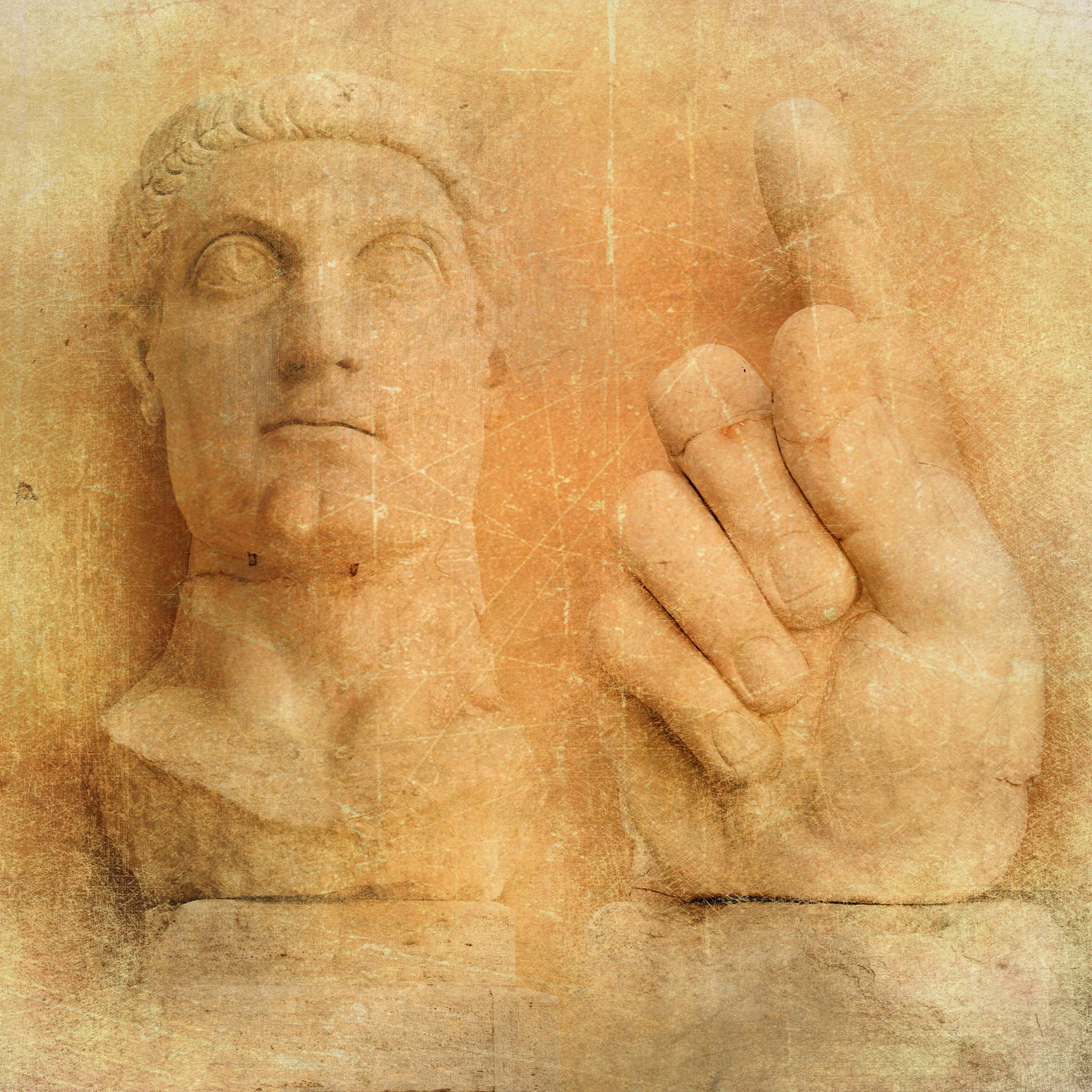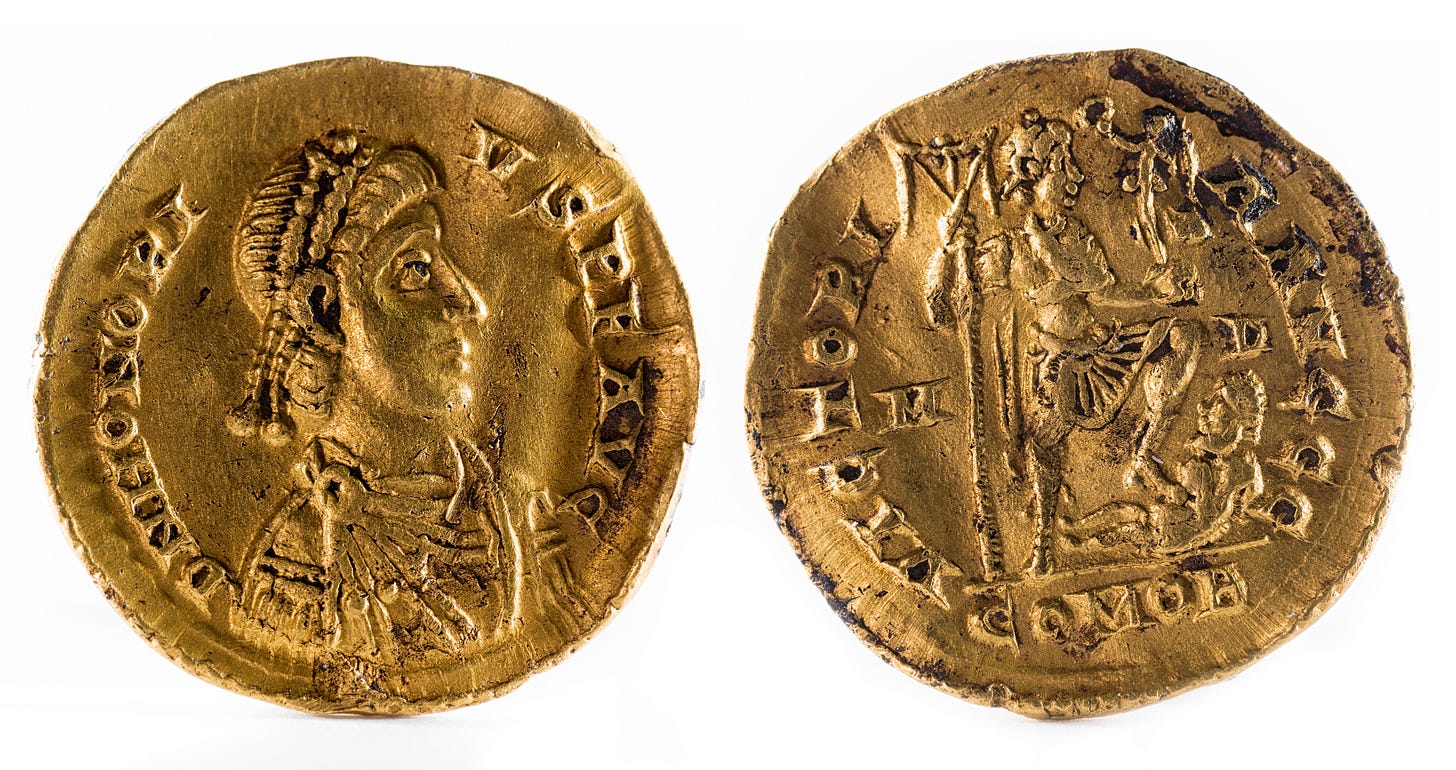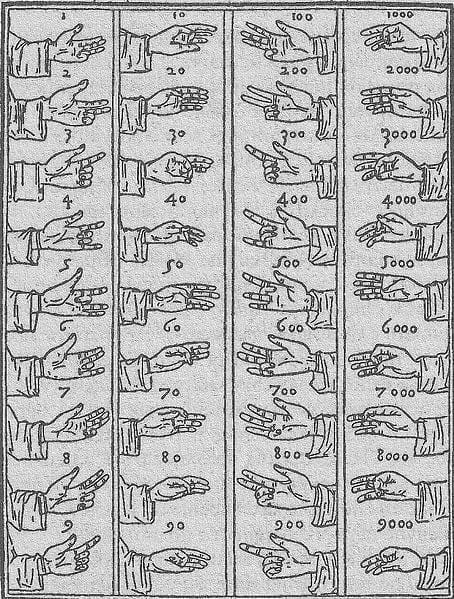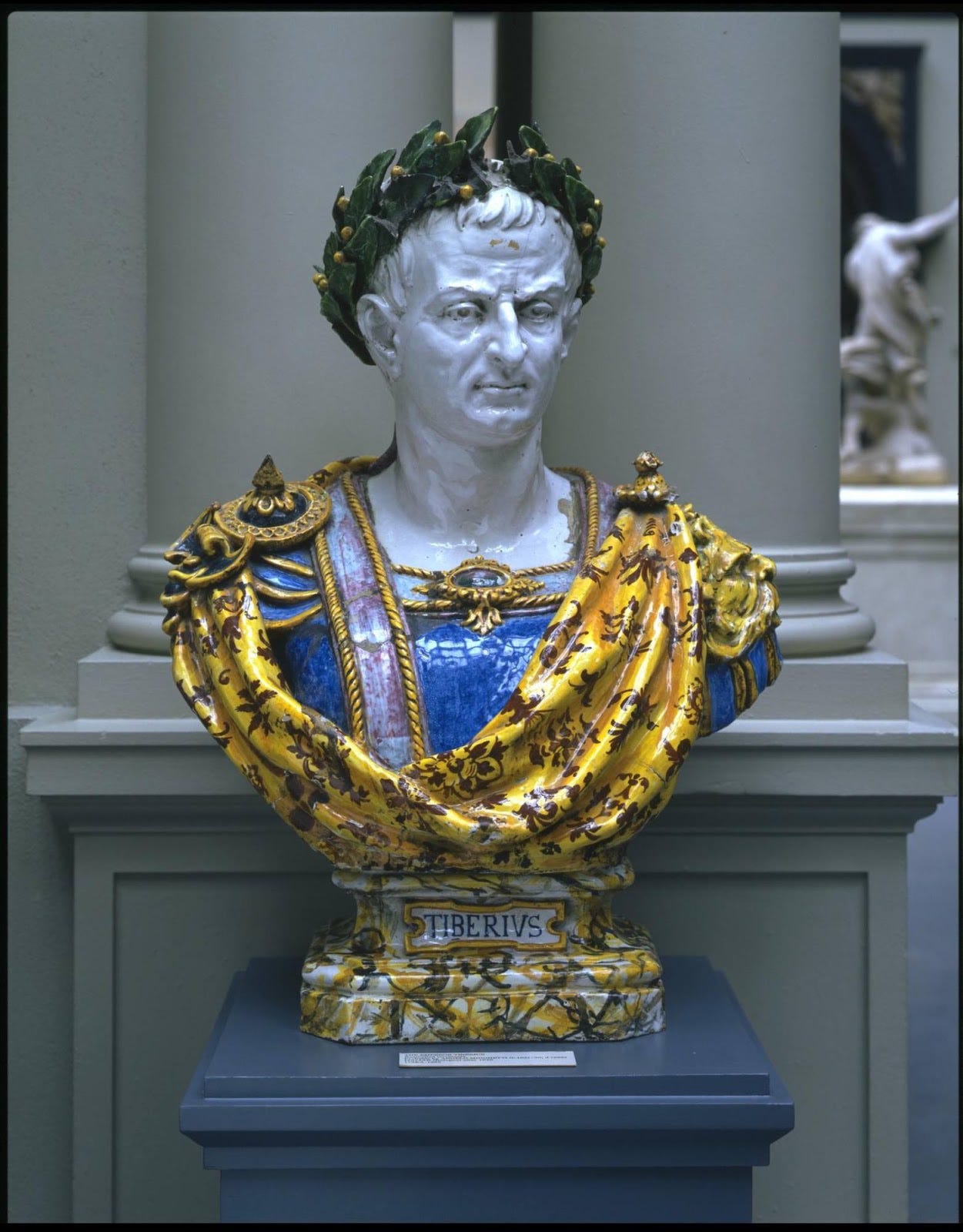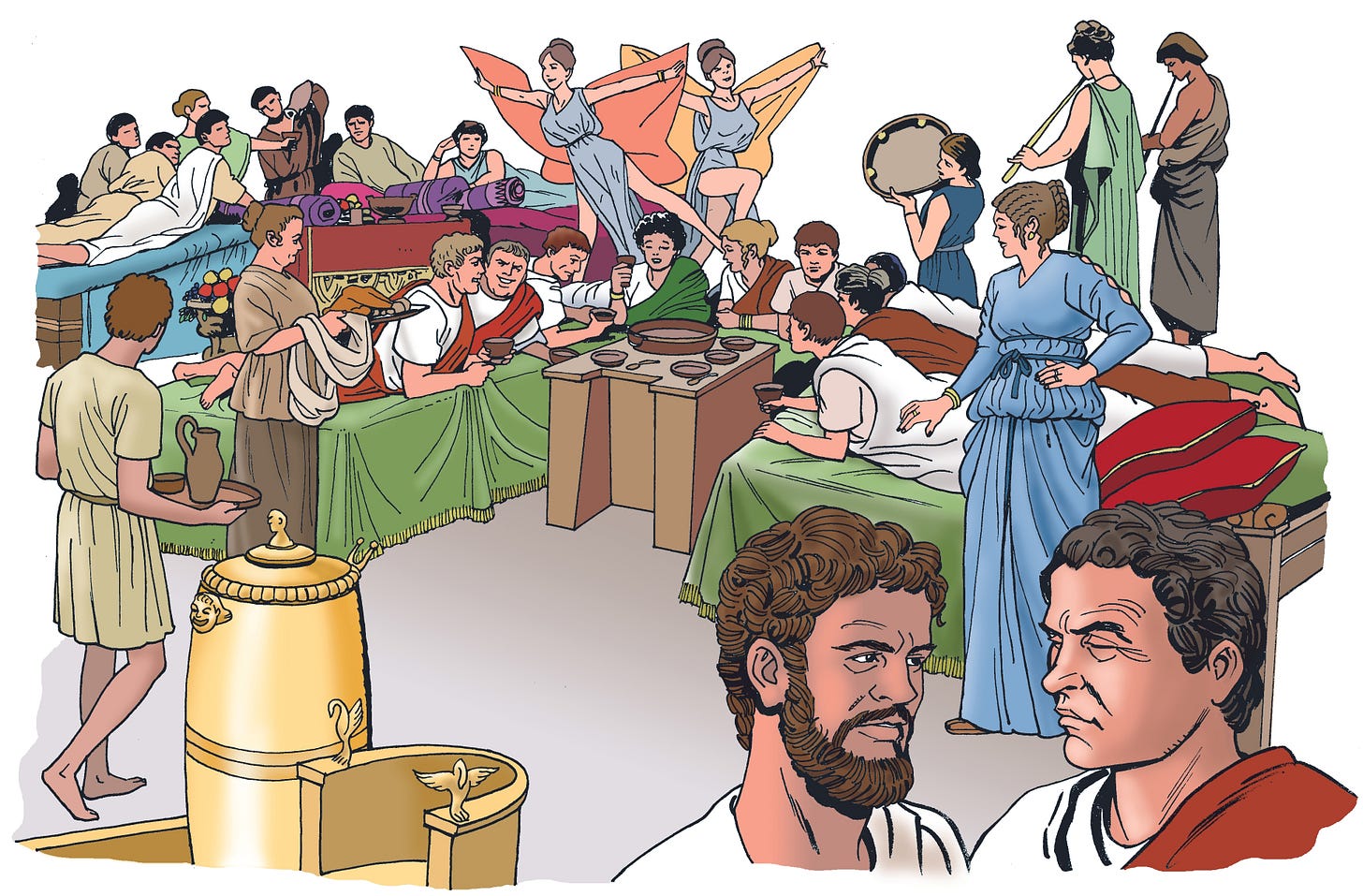Welcome to Part IV of the Roman Laws of Crypto!
If this is your first article in my Roman Laws of Crypto series I suggest you check out:
Part I (Introduction to Roman Governance Ideas)
Part II (Expanding the Ideas)
Part III (Roman DAO Framework)
This is the part where I get to explore some of the more entertaining themes I had to leave out of the framework article. I was working through a few other ideas and just felt that Part III was going to have to be the more serious endeavor with no distractions. I promise that after reading this article you will have a greater appreciation for just how experimental and quirky the Romans were, mostly due to circumstance. Did you really think all those statues were just plain, white marble?
In Part IV we are going to tackle in no particular order:
land and labor
reputation
payment in kind
immigration
polychromy
I promise a plethora of normally unrelated ideas that I have strung together via my popular, TornadoETH-free, Roman Laws of Crypto series - let’s get to Part IV!
The Romans believed in land and labor, this was how they rated everything.
ad arbitrium censoris
When a Censor presided over a Census they were to judge the declarations of land and labor. Whether a Republic, or an Empire the people who controlled the soldiers were very much interested in how wealthy their territory was. Senators dominated the political landscape as they were the new rich landowners.
Land was judged upon it's arable qualities, crops that could be grown, and other natural resources present on the land. Flooding, or recent natural disasters were also normally taken into consideration. Labor was also judged by sex; men were rated higher by about x2 versus children and women. Orphans and unmarried women were represented by their guardians and entered in a separate list.
A person who voluntarily absented himself from the census was considered incensus and subject to the severest punishment. Servius Tullius is said to have threatened such individuals with imprisonment and death (Livy)
The Romans during the imperial bureaucracy were crazy specific about knowing what they had, and after Augustus(Octavius) created the mail(courier system) with horse way stations allowing couriers to travel up to 80 km (50 miles) a day. The Censor(s) would demand more, and more specific data as the Romans got organized, and more and more people were assimilated into the empire.
He had to state the name and location of the land, and to specify what portion of it was arable, what meadow, what vineyard, and what olive-ground: and of the land thus described, he had to give his assessment of its value.
It was important to be efficient with the empire’s resources. Near the end of the Roman Empire it was common for rich landowners to hide their labor, and avoid paying taxes until an eventual tax cancellation. This was much later though, and when accounting for one’s holdings it was important to tiptoe the line of family ruin versus angering the current imperial rulers.
Each citizen had to give an account of himself, of his family, and of his property upon oath, "declared from the heart". They had to give their word.
This got me to thinking that maybe all we need to do is throw in an ‘oath’ to get everyone more in line.
Heuristic cycling reminds us we are using the Roman Republic governance lessons from an empire that spanned 1000+ years. Governance creation and policy writing is very boring, but with great risk. It is paramount we learn from those that have felt the stab of the knife. This was BEFORE the dark ages. So why did giving your ‘word’ actually matter in Roman times?
According to many it was due to the religious element - alleged to be inspired greatly by the religious leanings of Numa, the 2nd King of Rome. (Waaaay back in 715 BC!)
Men fear God, more than death - thus just as Freud feared criminal anarchy after the fall in religious observance; Numa thousands of years ago inspired Romans to keep their word; bonded by their farms, soldiering, and strong belief in religion. Life was also a bitch back then, and hedging your bets against eternal damnation was de rigueur. If we posit that crypto is not a religion, or a cult for that matter we’re going to have to lean heavily on Game Theory and plain, old, crypto culture. Recently a CT friend of mine Patrick Dugan was commenting on how Cypherpunks values aren’t reactionary conservative values, yet 80% of crypto was posting and memeing about them.

We have values in crypto, this I have no doubts, but can we trust people to give their word, and is there any penalty for breaking your word? I feel that anonymity might be a reasonable penalty. I was brainstorming a bit and came up with below. Feel free to tear it apart.
Reputation
You are not born with a reputation you earn it - the same applies for the crypto space.
When attempting to mitigate the risks of sybil-style attacks it is important to have permissionless reputation.
Sample Law:
Abstract: Reputation can be equal to 1 or 0.
i. No wallet starts with a reputation.
ii. If a wallet wants to create a reputation it must commit to the legal ‘oath’.
iii. The ‘oath’ guarantees the amount of time that the wallet will be the only wallet used by that individual. (EULA)
Promising to not be controlling, either through nominees, contracts, or any other means possible to facilitate any coordinated voting other than their own vote during the guaranteed time.
To guarantee not to vote more than once, either through others, or themselves directly.
iv: If a wallet fails their reputation and breaks their guarantee, they will lose their guarantee of anonymity and an investigation will ensue. Permissionless systems are to be a privilege of those that keep their reputation. Only anonymous wallets that fail their reputation are ever attempted to be doxxed, because they lied and gave cause.
Soulbound tokens are getting a lot of heat lately considering the Tornado Cash sanctions and the fact that most of crypto thinks we’re already in a Libertarian Anarcho-Syndicate. I can see arguments for both sides, but I try to visualize Soulbound tokens as more of the modern-day: driver’s licenses, passports, and festival tickets and I think it’s probably going to be ok. I don’t think Vitalik wants us to only have (1) Soulbound token as our entire financial-credit-report entity following us around - and if he is then he must have gotten an infection from one of those porn stars asses.
Payment in Kind
Payment-in-kind (PIK) is the use of a good or service as payment instead of cash.
I was discussing with the other Bob recently about how the Romans had this whole problem where they debased the currency so badly (i.e. no silver in the silver coin) that the entire currency was worthless. Diocletian the current emperor of the time decided to fix the coins, but failed miserably. There was success in the gold coin i.e. the Solidus, but this mostly benefited the ultra-wealthy and had no affect on the problem of paying the legions. Rome had a very serious problem as they were running a massive deficit, and well you better pay those soldiers unless you want a newly hailed Augustus.
Diocletian basically had no understanding of modern economics theory because well - it hadn’t been invented yet. His later morality laws were unbelievably terrible, but his main mistake in attempting to fix the currency was not removing ALL the valueless coins out of circulation. The empire had been so weak leading up to his rule that most of the coins actually contained no actual gold, silver, or copper. They failed to mention this to the population - so you can imagine how well that worked. He managed to mint pure gold coins again at a very good purity, but gold coins were only used by the ultra-wealthy so the the poor were left with their silverless, and copperless coins.
So how do you go about paying soldiers when your currency is not only weak, it’s worth literally nothing?
Well the Romans went about this by creating an extremely convoluted chart that gave every possible commodity a value in way of what it was worth in another commodity.
(4) bales of wheat = a soldier’s shield
(2) pairs of shoes = a goose
a chicken = (10) clay bricks.
Stuff like that. Basically the armies during many of the civil wars were constantly committing civil forfeiture and this was seriously pissing off the locals. It’s not that the armies didn’t want to pay for the food they were asking for (demanding). It was that the currency was literally worth jack shit and jack went home.
The main point I’m trying to drive across is that thousands of tokens, products, shares, fractional reserves, stablecoins, securities, or whatever you want to define them as are merely means of exchanging goods and services.
Just because Japan says that you can only trade Bitcoin, Ethereum and the 3rd tenor, (Klaatu barada, *cough*) doesn’t mean that other countries don’t have an appetite for other L1s. So you trade, you trade your ass off. Now you do get bogged down in the rules. It’s a bit like a 3-team trade in your favorite sports league. ‘Trading In Kind’ is what this all feels like and well a swap feels like a ‘swap’, doesn’t it?
So how about -
Trading in Kind
I remember when I was first listening to crypto podcasts and certain OGs would reminisce about when they denominated all their accounts in $BTC.
BUT THEY WERE RIGHT!
that’s the exact right way to think about it. It’s not that this is a solution in itself, or anything more than a thought exercise, but the observation is a powerful learning tool of exactly how this is going to balance itself out.
If $BTC == a trusted settlement layer {
return (bull);
}
You could replace ‘BTC’ with almost anything and it would work. I’m not saying Bitcoin is going anywhere, I’m just saying that the cryptocurrencies might end up being provably more reliable than TradFi as the economies of the West adapt to economic change. It’s a big world and every jurisdiction is going to want it’s own deal, so there will be a natural ebb and flow of who buddies up with who. Oh shit I’m starting to write like Arthur Hayes! Excalibur and the Inn…
Since this is mostly draft-level writing I’m really going to go out there and think about this idea that there would be thousands of different tokens providing app-level utility, but they just get the payment rails done better.
It’s like the difference between Shadow Drive and Arweave. For example if both provided equivocal storage it wouldn’t matter how they did it, just that the retail in front was able to deliver the product market fit.
Also I was looking into some other Roman cultural wingdings and came across this cool drawing from back in the day of how Romans counted with their hands!
Holy cow, I can’t even bend my fingers consistently in these setups. Again I remind you all that this is pre-dark ages. We’re talking 100-200 AD here.
So what the hell is Trading in Kind?
Maybe when you swap 10,000 USD of something it should just be that.
A swap.
I know that we’re all very used to contorting into pre-emptive compliance strikes in crypto, but you know maybe it’s just ok people can swap 10k USD at a time and it’s just fine because the value was reasonable, underwritten, and approved for this use case. At least tacitly.
If you go to the bank, take out less than five thousand dollars and go and give it to your mom to pay the contractor it’s technically two swaps and a payment.
Bank to You
You to Mom
Mom to Contractor
So the swaps aren’t even tracked today, at least not publicly. The bank has a record of you taking out cash, but the other swap and payment is not tracked. The contractor is assumed to register the transaction, but that’s not our business anymore.
Roman Immigration
There is unfortunately a disconnect today between how a typical crypto person values immigration versus the perceived value of immigration. For example in the United States, and Europe; many people think immigrants are stealing their jobs, livelihood, or culture.
Immigration is important to any society, and the price of a robust, modern culture is an eventual lack of unskilled labor. As a culture flourishes, the people will demand more and more luxuries, and this the Romans had in spades. Yet who wants to still toil in the fields, the legions, or the latrines as their society modernizes? Evolving into a service-based economy usually means you have two outcomes: a lack of cheap labor, or lots and lots of robots i.e. automation.
The tradeoff historically has been pretty near and dear to the United States founding principles; the land of opportunity, the land of the free; Americans traditionally follows the ‘dog-eat-dog’ philosophy, arguing that opportunity, and liberty can be provided, but guarantees are for socialist countries.
Another way to put this would be a twist on the old adage: Teach a man to fish, feed his family forever, BUT if he doesn’t catch fish, too bad, so sad! Let’s try and look at this in the Libertarian lens that is popular to many in crypto.
Libertarian argument:
“Suppose a farmer from the United States wanted to hire workers from Mexico. The government would have no right to prohibit him from doing this. To prevent the Mexicans from coming would violate the rights of both the American farmer and the Mexican workers to engage in voluntary transactions.” (Carens 1987: 253)
Therefore you can make many arguments for and against immigration, but namely, if you want to build a successful empire, or movement in this case; it’s probably best to not reject the best candidates just because they come from a country you’re not familiar with. Besides the general covenant for some time has been the following path to citizenship:
Achieve basic landed status in country you wish to reside. (Refugee, Points)
Work unskilled jobs until you are able to either speak the language and become gainfully employed, or continue working unskilled labor until your children can be educated in the culture you have adopted.
Be rewarded citizenship for your life of toil; or at least for your children who would be born naturalized citizens.
To give you a specific example in antiquity. The Romans had a hell of a time finding able-bodied men during the Antonine Plague (165–180 AD) Originally the playbook had been to annihilate the enemy, push them back across the border; show favor to certain tribes, keep them separated and distrustful in forming confederations, and defend the borders with fixed wall defenses.
Unfortunately after years of plague and civil war, it was slim pickings in regards to men. Now the Romans had been pretty good at settlement for quite some time now. They were savvy enough to never settle disbanded legions in the same place, preferring to disarm, disperse them into small groups, and assimilate them back to regular life (usually farming). This was so that a veteran legion might not get any ideas after retirement, and having a trained military force that may, or may not be loyal to the current leader of the day was never good policy; Just ask any Roman emperor murdered by the Praetorian guards.
So the Romans tried a new tactic, re-settling Barbarian tribes after they were defeated by the legions in the style described above. This provided future tax income for the imperial treasury, and allowed Gaul to not become a ghost land, while at the same time assimilating new people into the empire.
In fact it is argued by many historians that one of the main reasons the Roman Empire fell was that the Italian nobles of the 4th and 5th centuries were unwilling to accept Germanic, and Frankish generals as their equal peers, and thus they were unable to reinvigorate the slowly failing economy and numerous issues facing the empire near the end.
Polychromy
When Roman marble sculpture was rediscovered in the Renaissance, it emerged from more than a millennium of burial essentially devoid of its ancient polychromy. The monochromatic appearance of these works gave rise to new, modern canons of sculpture characterized by an emphasis on form with little consideration of color. In antiquity, however, Greek and Roman sculpture was originally richly embellished with colorful painting, gilding, silvering, and inlay. Such polychromy, which was integral to the meaning and immediacy of such works, survives today only in fragmentary condition.
Roman and Greek sculptures and architecture was colorful, realistic and stunning. What was a surprise to even myself was that when ancient Greek and Roman artifacts were first excavated they were mostly devoid of all color, and pigments due to a thousand years buried in the ground. This caused many people to think that Roman culture was severe, white, and minimalist, but actually it was the complete opposite!
I’m bringing this up because I think most crypto people are acutely aware of how easy it is to get lost in certain accepted narratives - especially in regards to financial history.
Jekyll Island, Gold standard and so on.
For almost my entire life I thought the Romans and Greeks were travelling to these gleaming, white marble homes - pure minimalists and devout to their stoic causes, but the reality was they were a vibrant population of all sorts of races and cultures. This was what made the Roman culture so strong in it’s glory days.
All of those white statues you see if you visit Italy and Greece…wait for it - were originally painted! I was recently on a tour of the Vatican museum and the tour guide made a big point about it, as this is still not very common knowledge. The numerous pigments, hues, and tints are all present on the statues in small traces, I still have trouble wrapping my head around this as so many popular movies and TV shows depict a whitewashed Rome and Greece. I had only read about this a few years back, but it was jarring to hear about it specifically on a tour I had taken before ten years ago and it was not even mentioned.
I’m not trying to make a huge argument about immigration, or polychromy, mainly I want to continue the crypto culture of questioning the established status quo.
Romans were known to love ultra-realism and it was not uncommon for certain patricians to have parties with dressed up statues - so lifelike that guests would be fooled into thinking they were another partygoer. That, or maybe they were just drunk off their faces on the watered-down wine.
Before I forget - for any wine drinkers out there. The Romans loved to water down their wine; absolute savages! Here they are laying around on ornate futons, drinking watered-down wine, and then off to the bathes to party naked with their best patrician buddies. Remember sitting down on a chair was just plain bad juju, no cap, fr fr.
In conclusion I’m probably going to end the Roman series here. I have more ideas in the chamber, but I think I might move on to other historical moments of governance, and creative opportunities. For all who have read the series I salute you, thanks for your support and I look forward to our shared crypto journeys. As one of the more older Gandalfs on CT, I appreciate all the enthusiasm shared for a brighter, more exciting future.
I found some new topics during my research and will summarize my final Roman to crypto comparisons in Part V, probably later this month. Besides anyone from China reading this knows that 4/IV is a very unlucky number.
We have now entered the wars of compliance and regulation, don’t fail to see the allies in countries we might not normally have conducted business. Personally I feel the major growth next cycle will be in Latin America, and Africa.
May your number always go up frens!
-Bob




